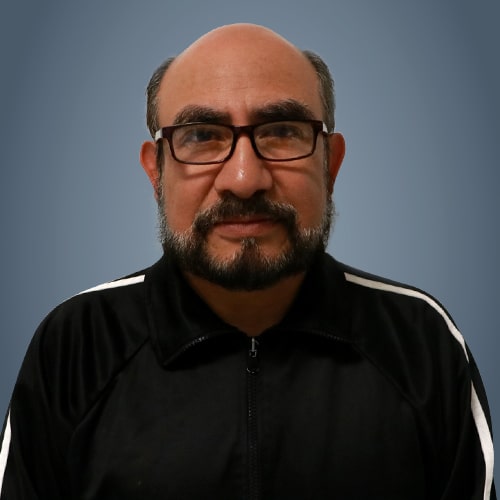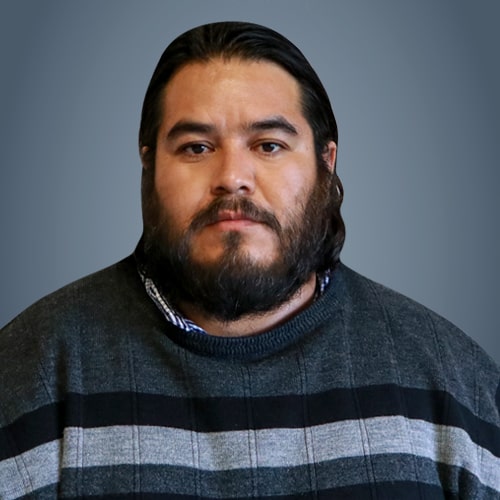Scientific research from history, essential for understanding the present

Dr. Mercedes Alanís Rufino
Research professor of the academic area of History and Anthropology of the UAEH.
*The UAEH call for applications for the Master's Degree in History is now open.
History is the knowledge of what happened in the past, while the historian has the purpose of searching in that past for answers to present concerns. Although anyone can refer to events of the past, investigate data and evidence out of curiosity, collect objects, documents or memorize moments and tell them with passion, another matter is to use techniques and methods to classify, analyze and convert it into an object of scientific study.
History as a science has been a priority for the Autonomous University of the State of Hidalgo (UAEH), therefore, in 1985 it created the Research Center on the State of Hidalgo and its main axes were around history and anthropology in the state.
Due to its results and interest, in 2001, the Honorable University Council approved the creation of the academic area of History and Anthropology with the objective of strengthening research and the formation of human resources in both disciplines.
Soon after, a degree in Mexican History was created, whose curriculum offers a solid training in the areas of research, teaching, extension, dissemination, popularization and management of culture.
Master's degree for research
With the strengthening of its faculty and research professors, the academic area created a Master's program in History oriented to scientific research and achieved its approval in 2019, after several years of process to achieve a solid academic and flexible program according to the interests of the students.
A year after being approved and with the call for its first generation, the master's degree already has the recognition of National Quality Graduate Programs of CONACYT as a newly created program for a period of four years. It is the first program oriented to historical research in the state of Hidalgo.
Its objective is to train masters and master researchers in history for the generation and dissemination of new historical knowledge, from theoretical-methodological references that account for the changes, permanence and continuity in social, economic and cultural processes at regional, national and international levels.
This program has two Lines of Knowledge Generation and Application (LGAC), "Culture and Society in the Historical Processes in Mexico" which analyzes culture and society in Mexico from a double perspective, anthropological and/or historical; and "Society and Economy in the Historical Processes in Mexico" which analyzes the socioeconomic dynamics of Mexico from pre-Columbian times to the present.
Grouped from these LGAC, either with the focus of socioeconomic history, cultural history and social history, the following research projects are developed: Cosmovision: Past and present of man's relationship with his environment, Visual cultures, Studies on cultural heritage, Management of natural resources 19th and 20th centuries, History through audiovisual media, History of water uses, History and photography, Man-nature relationship, Colonial institutions and government, Legislation for government, Foreign migration, Religious systems, society and material life, Society and transgression in New Spain, and Territory and society.
These projects, which are the ones that applicants are invited to register their research proposals for their graduate thesis, are headed by the full-time research professors who make up the Basic Academic Core and the Complementary Academic Core of the Master's Program in History.
The thirteen professors that make up the Basic Academic Core belong to the academic area of History and Anthropology, are part of the National System of Researchers and have the recognition of Desirable Profile of the Program for the Professional Development of Teachers (PRODEP).
The curriculum offered by the Master's in History has a flexible curriculum that is centered on three axes: theoretical, methodological and disciplinary, which are studied during the four semesters of the program.
Registration for the selection process for the admission of the first generation concludes on October 30, 2020. Those who pass the academic evaluation will begin classes in the January-June 2021 semester.
For more information on the Master's Degree in History, including the selection process, please visit the institutional microsite:
https://www.uaeh.edu.mx/campus/icshu/oferta/maestrias/historia/
You can also contact the program coordinator, Dr. Mercedes Alanís Rufino at: maestria_historia@uaeh.edu.mx
Core Academic Core Members
Dr. Celia Mercedes Alanis
mercedes_alanis@uaeh.edu.mx mercedes_alanis@uaeh.edu.mx
SNI I
PRODEP: Current
LGAC: Culture and Society in the Historical Processes in Mexico.
Dr. Raquel Ofelia Barceló Quintal
rbarcelo@uaeh.edu.mx
SNI I
PRODEP: Current
LGAC: Society and Economy in the Historical Processes in Mexico
Dr. Thelma Camacho Morfín
thelma_camacho@uaeh.edu.mx
SNI I
PRODEP: Current
LGAC: Culture and Society in the Historical Processes in Mexico.

Dr. Jesus Enciso Gonzalez
jesus_enciso@uaeh.edu.mx
SNI I
PRODEP: Current
LGAC: Society and Economy in the Historical Processes in Mexico.

Dr. Emmanuel Galindo Escamilla
emmanuel_galindo6175@uaeh.edu.mx
SNI I
PRODEP: Current
LGAC: Society and Economy in the Historical Processes in Mexico.

Dr. María del Carmen García Escudero
mariadelcarmen_garcia@uaeh.edu.mx
SNI Candidate
PRODEP: Current
LGAC: Culture and Society in the Historical Processes in Mexico
Dr. Adriana Gómez Aiza
aiza@uaeh.edu.mx
SNI I
PRODEP: Current
LGAC: Culture and Society in the Historical Processes in Mexico.
Dr. Manuel Jesús González Manrique
manuel_gonzalez@uaeh.edu.mx
SNI I
PRODEP: Current
LGAC: Culture and Society in the Historical Processes in Mexico.
Dr. Francisco Luis Jiménez Abollado
fjimenez@uaeh.edu.mx
SNI I
PRODEP: Current
LGAC: Society and Economy in the Historical Processes in Mexico.
Dr. Manuel Alberto Morales Damián
mmorales@uaeh.edu.mx
SNI II
PRODEP: Current
LGAC: Culture and Society in the Historical Processes in Mexico.
Dr. Enrique Nieto Estrada
enrique_nieto7985@uaeh.edu.mx
SNI I
PRODEP: Current
LGAC: Culture and Society in the Historical Processes in Mexico.
Dr. Verenice Cipatli Ramírez Calva
ramirezv@uaeh.edu.mx
SNI I
PRODEP: Current
LGAC: Society and Economy in the Historical Processes in Mexico.
Dr. Sergio Sánchez Vázquez
sergios@uaeh.edu.mx
SNI I
PRODEP: Current
LGAC: Culture and Society in the Historical Processes in Mexico.
| Complementary Academic Core |
|---|
| Camacho Ángeles Montserrat |
| Durán Sandoval Felipe |
| Velasquez Sanchez Hidalgo Veronica |
| Venegas de la Torre Águeda Goretty |
WHO IS IT?
María del Consuelo Cuevas Cardona studied biology at the National Autonomous University of Mexico, since then she has had a great interest in the popularization of science and for this reason, recently graduated from her degree, she was hired at the University Center for Science Communication of the UNAM where she collaborated for 9 years.
For family reasons, she returned to Pachuca. First she worked in the state government, then she joined the Autonomous University of the State of Hidalgo where she made several efforts to popularize science, but when they opened the biology career she was incorporated into the teaching team of the Institute of Basic Sciences and Engineering, the ICBI.
Consuelo studied a master's degree in Biological Sciences and a doctorate in Sciences at UNAM, and thus began her career as a researcher, a role in which her main interests are two topics: the history of biology in Mexico and environmental history.
Due to her research work since her master's degree, she is a specialist in the history of science in Mexico and its first popularizers.
Currently, she is a research professor at the Academic Area of Biology, Institute of Basic Sciences and Engineering, Universidad Autónoma del Estado de Hidalgo and member of the National System of Researchers level 1.
Consuelo Cuevas is the author of several scientific publications, one of her latest works is Observations of Low Latitude Red Aurora in Mexico During the 1859 Carrington Geomagnetic Storm. She is also the enthusiastic editor of the science popularization magazine Herreriana.